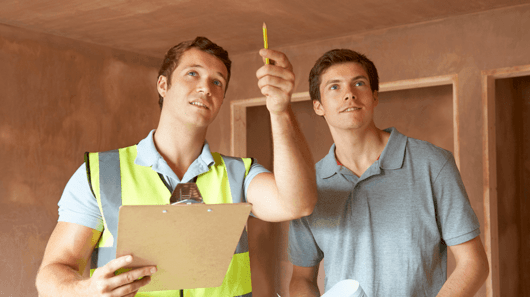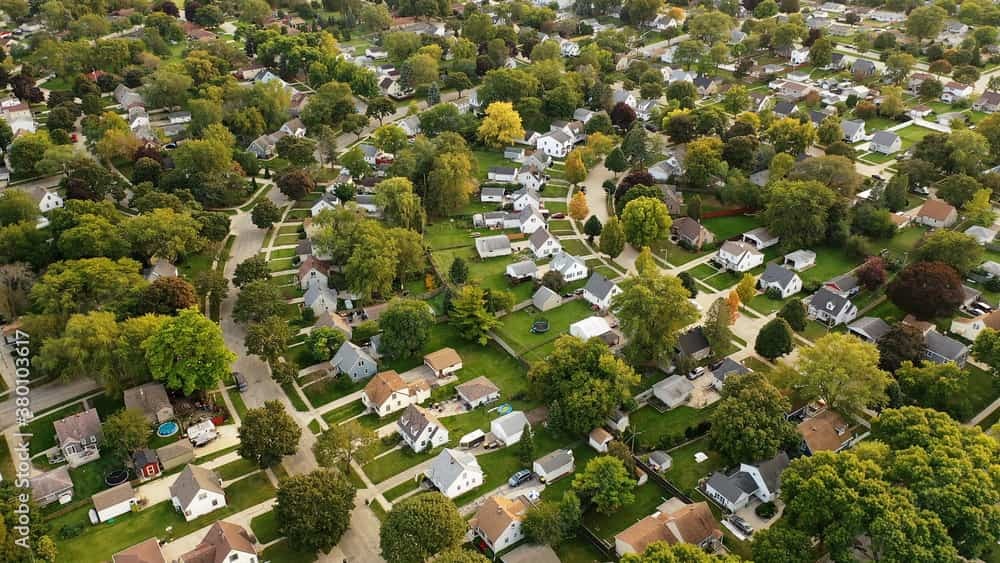


Buying a home is not easy - it can take a lot of time, hard work, and patience. There are many things to consider, from the type of home you want to the location and price range of your property. Once you understand what you want in a home, it's time to start home shopping! But with so many options available, where should you start? This blog is the ultimate guide on buying a house with 10 advanced home buyer tips. By keeping these tips in mind, you'll be able to narrow down your search and find your perfect home.
1) Understanding Your Needs
First and foremost, when looking to buy a home, you need to understand your needs. What type of house are you looking for - a single-family home, or a condo? What size of house do you need? How much can you afford to spend on the down payment, monthly mortgage, and other costs? Once you've been able to answer these questions, it’s usually a whole lot easier to start your home search!
2) Choosing a Real Estate Agent

If you know someone who is looking for a home, one of the best pieces of advice you can give them is to find an excellent real estate agent. The agent is so vital in the home buying process because they will help at every step, from finding potential homes to going through the actual purchase process. A great real estate agent will know all about housing markets and trends, and armed with that information, will be best able to advise you based on your needs.
Stats released by National Association of Realtors show that most people find their realtors by referrals from friends, family, and neighbors - but, one thing to note is that being too hasty in selecting an agent can work against you in the process. It is always best to get multiple opinions from different expert agents in your market. Not sure how to find additional agents? SetValue can help connect you with more agents!
3) Choosing a Home
There are many factors to consider when buying a home such as location and size, neighborhood and the surrounding area, age of the property, ideal home style, and right amount of space. One of the first things you should decide on is the type and style of home you want. There are three categories that people think of when it comes to homes: a starter home, a move-up home, and luxury homes. A starter home is affordable and generally has the basics you’ll need.
A move-up home includes more amenities and space than a starter home, but it may be out of your price range if you’ve recently started looking. Lastly, a luxury home typically has many amenities and upgrades like an elevator or wine cellar. Always remember to keep your budget in mind when shopping so you can be realistic in purchasing a property that accommodates you.
4) Picking the Right Mortgage Company
One of the critical decisions you'll make when buying a home is figuring out how you can finance your purchase. Your mortgage company will be in charge of your mortgage and will be involved in any issues that arise in your buying process, so you need to choose the right company for your needs. Some things to look for when choosing a company are the rates they offer, the lengths of mortgages they offer, and how much down payment they require.
5) The hiring of Home inspectors

Home inspections are essential for finding potential problems with a house. These inspections often reveal serious issues like foundation problems, rot, pest infestations, roof damage, mold, and more. By catching these issues early on, you can save yourself a lot of money and headaches down the road.
Before you decide to buy a home, you need to be aware of potential problems that could come up. If there is an issue with the property, the good news is that the seller often has to fix it before the sale goes through. However, this needs to be identified in the inspection process. If issues or damage are encountered in the inspection process, this can affect what negotiations and terms were agreed upon previously, so make sure you are well-informed before making a final decision in these instances.
6) Closing Costs and Fees
Closing costs are the expenses you will need to pay when you close on your home. When considering how much to spend, think about the down payment and what you can afford. You can also speak to a mortgage lender or real estate agent to get more information on these costs. Closing costs typically include insurance premiums, appraisal fees, inspection fees, title search/title insurance, and many others.
Appraisal fees are essential to consider when selling a home before buying a different home as they help determine your loan amount. The higher the appraised value of the home you’re selling, the more money your lender will lend you. If your appraised value is lower than what you owe on your current house (or if it's lower than what you wanted), then you may have a few options: you can ask for a different appraisal and get an updated property assessment, or you and your lender could decide not to buy a new property at all and you can continue living in your current home instead.
7) Insurance Coverage

Another essential thing to consider when buying a home is insurance coverage. It's important to know what type of insurance you'll need for your new home and how much it will cost. You should also know if your homeowner's or renters' insurance will cover the contents inside. You can also buy separate coverage for your possessions as most homeowner policies only cover up to a specific limit.
8) Neighborhoods and Schools

One of the most important things to consider when buying a home is where you want to live. Neighborhoods are different and can have a significant impact on your day-to-day life. Find one that offers the type of lifestyle you're looking for, whether that be in a bustling city or a tranquil suburb.
Another thing to consider is the school district. If your family includes children, pay close attention to what schools are available in the area. It will depend on where you buy your house and how much space you have. You may need to make concessions with other aspects of the house to access better schools nearby.
9) Preparing your finances
Before you start buying your new home, it is a good idea to prepare your finances. You will need money for the down payment and the closing costs, so make sure you factor that into your budget. Make sure you have enough savings in hand, and the amount you’ll need depends on if you intend to pay cash or if you are going to finance the purchase.
It would also help to calculate the expenses you would have to pay for the first year, such as property taxes and homeowners insurance.
This is where your mortgage choices are important - it is essential to compare different rates from different lenders and check with a financial adviser before you apply for a loan. Many mortgage calculators online can help you figure out how much home you can afford based on your income and other factors.
10) Negotiating with the seller

One of the most important things you can do when buying a new home is negotiating with the seller. Remember, they want to get as much money for their house as possible, but they may be willing to negotiate on price. Before you begin negotiating, know what you can afford.
Calculate your mortgage payments based on the interest rate you're approved for and how much you plan to put down. Make sure you have a plan of what the closing costs will be as well. You may want to negotiate a lower price if the seller is willing to pay some of your closing costs.
After you've identified what you can afford, you may have space to negotiate. This ability to negotiate will definitely depend on the market you are in - always consult with your agent before deciding to negotiate. If you are trying to purchase a home in a buyer-rich area or in a space with limited inventory, you may be better off submitting a strong offer to begin with.
How to Calculate Your Monthly Mortgage Payment by Hand
Calculating your mortgage by hand is a good idea because you will learn how different factors work together to affect your monthly rate. There are a few different things that will affect your monthly mortgage payment. These variables include the amount you borrow from the bank, the interest rate on your loan, and the number of years you have to pay back your mortgage.
For your mortgage calc, you will use this formula:
M = P [ i(1 + i)^n ] / [ (1 + i)^n – 1].
M = Total payment of the month
P = The total loan amount
I = monthly percentage
N = total months
To figure out your mortgage interest rate, divide I by N. This is your interest rate per month.
As an example, let’s set some numbers to work with. Say $100,000 (P) is the total amount of your loan, while 5% (i) is your annual interest rate.
To calculate your monthly interest rate, divide .05 by 12. It gives you .00417, which is your monthly interest rate.
If your loan term is 120 months, solve for
M = 100,000 [.00417(1+.00417)^120]/[(1+.00417)^120-1>
To solve, calculate (1+.00417)^120 first. Unless you can calculate exponents in your head, you'll need the help of a calculator for this portion. We calculated 1.6467. Plug this back into the equation:
M = 100,000 [.00417(1.64767)]/[.64767].
Next, solve all the equations within the brackets. It simplifies the equation down to just 100,000 X .0106, which equals 1060.
Now that you know the cost of your mortgage, you should be aware that you would need to pay around $1060 per month for 10 years to pay it off fully. Remember that these numbers are rounded to the nearest whole number so that the actual amount may be slightly different.
Our simple equation only uses your loan amount, interest rate, and timeline. Down payments, homeowner's insurance, and property taxes are all costs that will factor into your monthly payment. You may need to use other variables depending on your situation.
Calculating Other Monthly Costs
You can change this calculation to factor in your down payment by altering the equation slightly. If you're paying a down payment, that will impact the P in your equation — or how much you borrow.
If you're paying a 20% down payment in the first month of your payment period, your equation will change to:
M= 100,000-20,000 [.00417(1+.00417)^119]/[(1+.00417)^119-1].
We've made a few adjustments to our calculations to reflect the fact that you'll be making a down payment of $20,000. It means your monthly payments will start after the initial payment is made, and P (the total amount of payments) has been adjusted to reflect this.
Final Thought
Are you considering purchasing a home? It is essential to be aware of the factors involved in such a decision. Usually the best way to do so is by finding the right agent to partner with, which is where SetValue can step in to help! Home buying can be a daunting task, but it can be a little less daunting with the right tools and strategy in place.
Message has been sent!